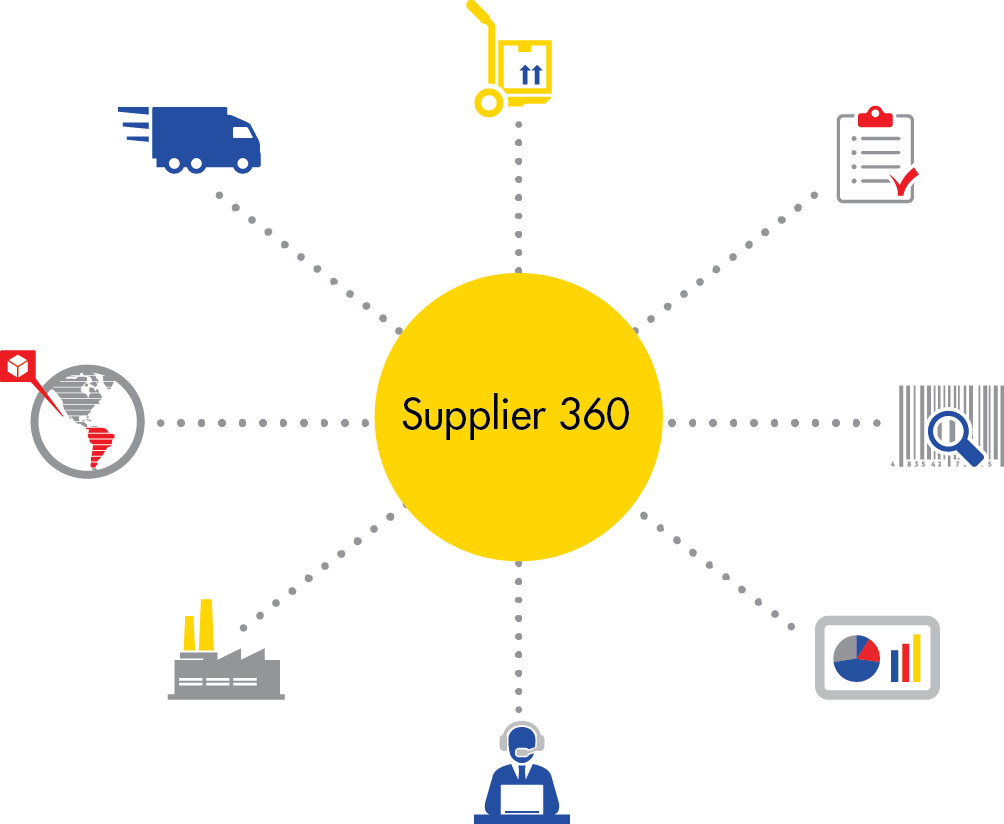4 Ways to Achieve Supply Chain Compliance

Supply chain compliance is among the top challenges leading supply chain and procurement organizations have to focus on. Forty-five (45) percent of supply chain executives say that they are experiencing increased pressure for regulatory compliance and internal compliance to contracts, according to a recent Aberdeen study. Companies experiencing supply-chain fraud, waste, or abuse even rose from 26% in 2014 to 29% in 2015, according to Deloitte.
Compliance is also a hot topic, when it comes to supplier management and their social, labor and working conditions. Just recently, a large Swiss food producer was sued over claims that one of its cat food contained fish from a Thai supplier that uses slave labor. No matter if a compliance issue is within your company or with one of your suppliers, non-compliance can damage your company’s brand and reputation, lead to delays in launch of new products and services, supply chain disruptions, regulatory penalties or environmental health and safety issues. To avoid the risk of bad reputation, ethical or compliance issues with suppliers or sub-suppliers, you need to carefully assess and qualify new suppliers for onboarding and evaluate risk that may be caused by existing suppliers and their sub-suppliers. Leading organizations make compliance management a priority. Over 47% of companies have established programs to prevent and detect supply-chain risks (up from 43% a year ago), according to Deloitte. They recognize the importance of capabilities enabling them to gain greater visibility and trust across their supply chains.
Here are four ways that will help you better achieve supply chain compliance:
1. Make ethics and compliance a factor when qualifying a new supplier
When on-boarding a new supplier, make sure you carefully assess and prequalify the new vendor. Exclude non-compliance before signing a contract. Verify supplier compliance during the on-boarding process by using checklists and standardized workflows. Make sure you communicate your organization’s ethics and values. The supplier needs to understand and align with them. Use supplier risk questionnaires embedded in the online approval process of your supplier self-service portal. Questions should be configurable based on your company’s requirements, industry standards and the products or services provided. They may contain the categories, insurance, safety, environment, sustainability, legal and financial information or sub-suppliers. Once on-boarded, evaluate and assess suppliers periodically for compliance to ensure their ongoing commitment to your company’s values. According to Deloitte, about 65% of respondents said their companies perform due diligence on at least some vendors and business partners.
2. Improve supply chain visibility and get a 360 view of your suppliers and sub-suppliers
When it comes to existing vendors, make sure you get access to current and complete supplier insurance, safety, environment, sustainability, legal and financial information. This will help improve supply chain visibility and achieve trusted supplier relationships. Ideally all supplier-related documents are stored and managed in one central location that can be accessed by a cross-function team. Leverage a master-data fueled supplier management portal providing a 360 view of all vendor relationships. Informatica’s vendor management application helps you obtain the data you need to assess, monitor and analyze your suppliers’ compliance. Get a single trusted view of your suppliers’ and sub-suppliers’ hierarchies globally. Receive an alert if a certificate required to ensure compliance is expiring. Access third party risk assessment information - like Dun & Bradstreet - for a comprehensive risk and compliance evaluation.
3. Support product labeling compliance with automated GDSN-activities
An increasing number of industry standards and public regulations highly influence supply chain processes, especially for manufacturers and retailers. Complying with those standards is one reason why a focus on managing supply chain risk and compliance is important. Most of the rules are designed to protect consumers and have to be implemented and respected by many parties along the supply chain. In the healthcare industry, a couple of initiatives exist to increase traceability of pharmaceutical ingredients to reduce risk for patients and improve supply chain security and product recalls (e.g. UDI compliance). Another example is the food industry: The independent non-profit organization GS1, the U.S. Food and Drug Administration (FDA) or the European Union have set rules and commonly used standards for food labelling. Beside the laws, rising consumer expectations increase the pressure to provide correct, complete and current product information across all sales channels. Today, adding an allergen to a chocolate bar can have huge impact on your supply chain and compliance. Implement a master-data fueled product information management system that provides an accelerator to automatically exchange and update product attributes via the Global Data Synchronization Network (GDSN) with your trading partners. A real-time data synchronization will save time and help you cope with regulatory requirements ensuring items and products are labelled with complete and legally required information across all sales channels. And ideally, this solution integrates with your supplier management application.
4. Establish a compliance supporting company culture
It is important to take a holistic approach when establishing a compliance program and systems that support your corporate strategy. But one lesson learned from the Volkswagen crisis for example, is that compliance does not only rely on compliance supporting management systems. Compliance is also about ethical values and requires a compliance supporting company culture that is also lived by the upper management. This is prerequisite for building trusted relationships and ensuring compliance not only within your company, but also along your supply chain and with your trading partners that need to agree with your company's code of ethics, compliance policies, procedures, and guidelines.
Download the full report “The Value of Strategic Supplier Data Management” from The Aberdeen Group.









